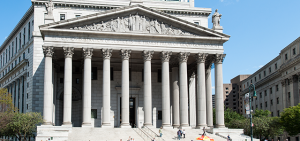 As we are all aware, the effects of the COVID-19 virus on commercial leases will be quite substantial. Many businesses have been forced to limit their hours, or have been forbidden to open at all during this time. Of course, a business whose income has been limited in this manner will have problems meeting its rent obligations under its lease.
As we are all aware, the effects of the COVID-19 virus on commercial leases will be quite substantial. Many businesses have been forced to limit their hours, or have been forbidden to open at all during this time. Of course, a business whose income has been limited in this manner will have problems meeting its rent obligations under its lease.
When this occurs, there may be potential liability for the guarantors of such leases. Under many commercial leases, the principals of the business may be required to personally guarantee payment of the business’ rent obligations. This means that if the corporate leaseholder fails to pay the rent, the guarantors may be sued personally to remit the sums due under the lease.
There are different types of guarantees under commercial leases, as has been explained in a prior blog post. Experienced counsel should carefully review the lease to determine its exact terms and the potential obligations of the guarantors.
A recent case decided in the New York County Supreme Court may limit the obligations of lease guarantors under certain circumstances. In this matter, the landlord owned commercial property in the Bronx, and leased the property to several corporations. The owner of the corporations personally guaranteed the financial obligations under the lease.
However, the tenants fell behind in their rent obligations, and then refused to vacate the premises after the lease term had expired. The Court evaluated whether the guarantor was responsible for additional obligations to pay use and occupancy (a technical term for rent due after a lease term has expired).
The Court ruled that generally, a guarantor is responsible for obligations under the Lease, and all extensions and renewals, which means that the guarantor was responsible for obligations during the original term of the lease, plus such term as extended or renewed. However, the Court then ruled that any sums which may have been due after the lease expired were not part of the guarantor’s obligations. When a tenant “holds over” after expiration of the lease term, the landlord is generally permitted to seeking additional rent on the same terms as under the original lease. However, the guarantor’s legal obligations ended when the original lease expired, so the guarantor would not be liable for these additional sums which may be due after the end of the lease term.
Many tenants may remain in the premises, with the consent of their landlord, after the lease term has expired. They usually pay the same rent as was due under the original lease, and then become month-to-month tenants, which means that either party may terminate the relationship with 30 day’s notice. However, landlords should be aware that if a commercial tenant who is holding over under these circumstances fails to pay rent, the guarantor will not be responsible for amounts due since the original lease term has expired.
Our firm handles commercial leases for both landlords and tenants, and, during these difficult times, remains available to consult with those seeking assistance.
 New York Real Estate Lawyers Blog
New York Real Estate Lawyers Blog

